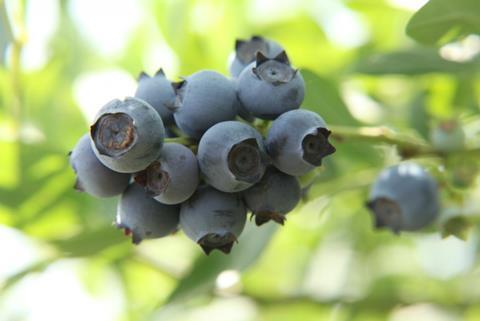
Robust value and volume sales no doubt ease the pain of any short-term supply issues in soft fruit, but an abrupt end to the Chilean season and a delayed start to the Spanish crop is certainly not making things easy.
Demand remains strong overall, with berries up 10.4 and 6.2 per cent on value and volume respectively [KWP, 52 w/e 29 January 2017]. Blueberries remain the best-performing sub-category, with sales up 20.6 per cent year on year, but quality at the shoulders of the season offers a chance to grow even further, helped by Morocco and Peru.
Meanwhile, Spanish export body Freshuelva has warned that it is experiencing delayed production, rather than a smaller crop, thanks to cold, wet conditions affecting early season output. Some suppliers have warned that this could see a glut of fruit on the market around the time of the start of the British season, with the Spanish marketing window reduced.
Chairman of British Summer Fruits Laurence Olins says: “My impression is that the industry has been short of fruit since October, now the Chilean blueberry season has come to a rapid end, South Africa has finished, and Spain is late. There will be sufficient amounts of fruit on the market around April time.”
Grower Marion Regan, of Hugh Lowe Farms, says the supply issues in Iberia could mean a “good entry point” for English fruit. “We’re hoping that the recent supply issues will mean that the British crop, when it becomes available, will find very welcome buyers. Having said that, Iberian growers are hoping for a much better supply from now on. It should be a good entry point for British fruit,” she says.
But commercial controller of soft-fruit PO Asplins, Chris Rose, sees challenges ahead. “The Spanish season is running late and although prices are currently much better than this time last year, I have concerns that we have a greater volume of UK glasshouse strawberry, which is likely to overlap the Spanish later fruit. This will cause significant price pressure.”
Nick Marston, MD of Berry Gardens, adds: “Due to a later season as a result of poor weather in traditional winter growing areas such as Egypt and Morocco, strawberry availability has suffered resulting in a decrease in value of 15 per cent. Conversely we have been importing blueberries from new South American suppliers and according to the data the category has increased in value by nearly 15 per cent and penetration almost 24 per cent.”
Morocco has been a welcome addition to blueberry supply programmes in the last couple of weeks, as BerryWorld head of sales Paul Avery explains: “The rate of planting isn’t slowing down, so it shouldn’t be a surprise to see volumes of Morocco blues up by 30 per cent year on year. It’s not all coming to the UK, such is the demand for blues across Europe now. Our challenge is still to get the sufficient volumes with great eating varieties to close the gap between Chile and the northern hemisphere.”
Peru is also helping blueberry suppliers, and MD of Pacific Produce Rob Cullum says exporter Talsa was able to help during Polish shortages, and provided a consistent supply from September to February.
Elsewhere, packaging costs have been hit by fluctuating currency. Commercial director of Angus Soft Fruits, John Gray, says: “Pack sizes are under a bit of pressure because imported material has got more expensive with currency movement. You see blueberry packs going from 225g to 200g. There’s a psychological £2 a unit price ceiling and that’s a challenge but somehow it’s going to have to be overcome.”
With confidence high for the forthcoming British berry season, thanks to a sufficient number of chill units over winter, berries certainly look set for further growth.



